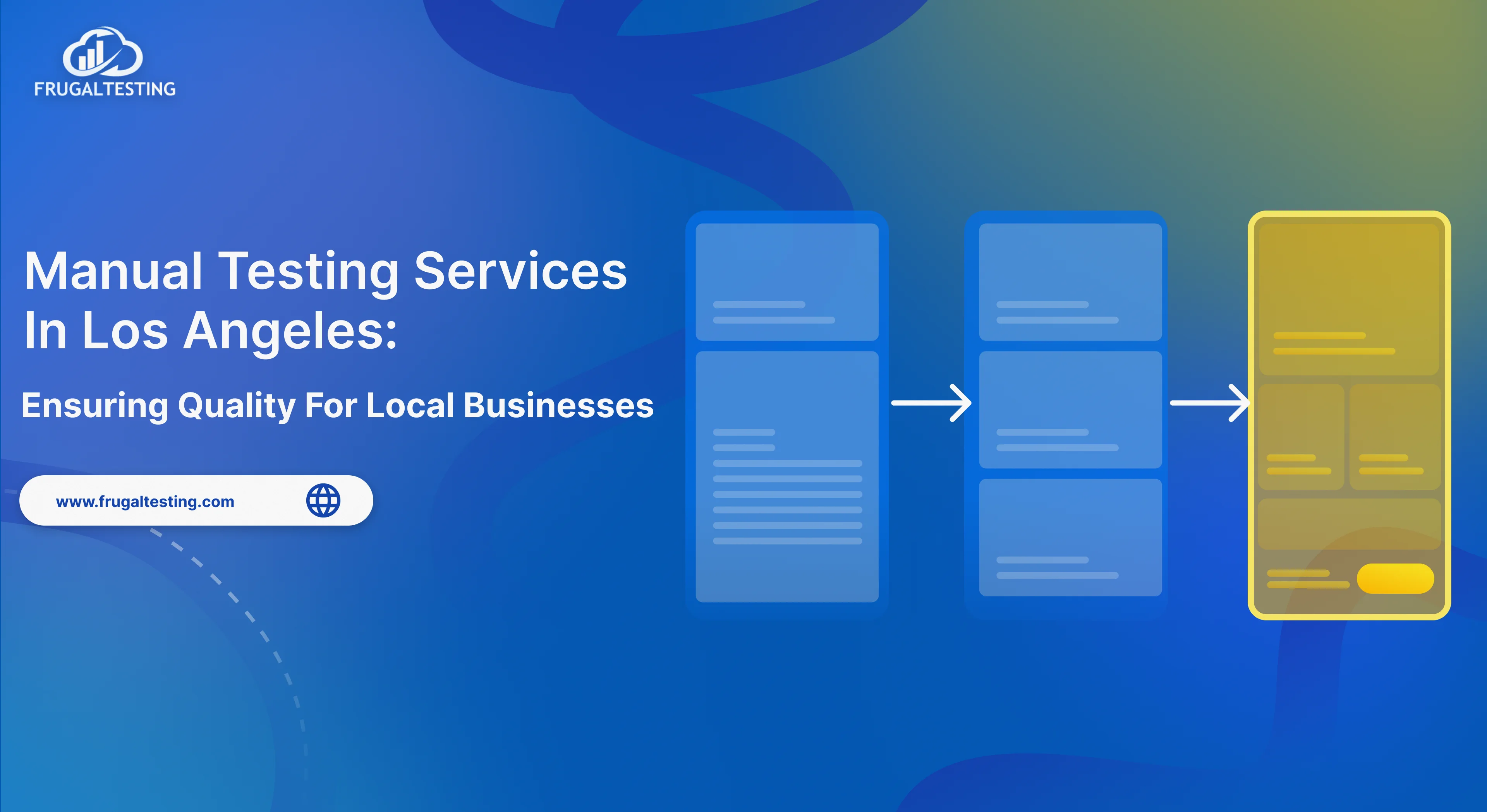Producing faultless software is not a luxury, but a must. With rising user demands and complicated application environments, organizations cannot afford to compromise on quality. This is where independent software testing services come into play.
Unlike in-house testing, outsourced software testing services provide an impartial, unbiased examination of your product, guaranteeing that it fulfills functional, performance, and security criteria free of internal pressure or influence. These services cover several software testing types, such as automated, penetration, regression, and AI-driven frameworks.
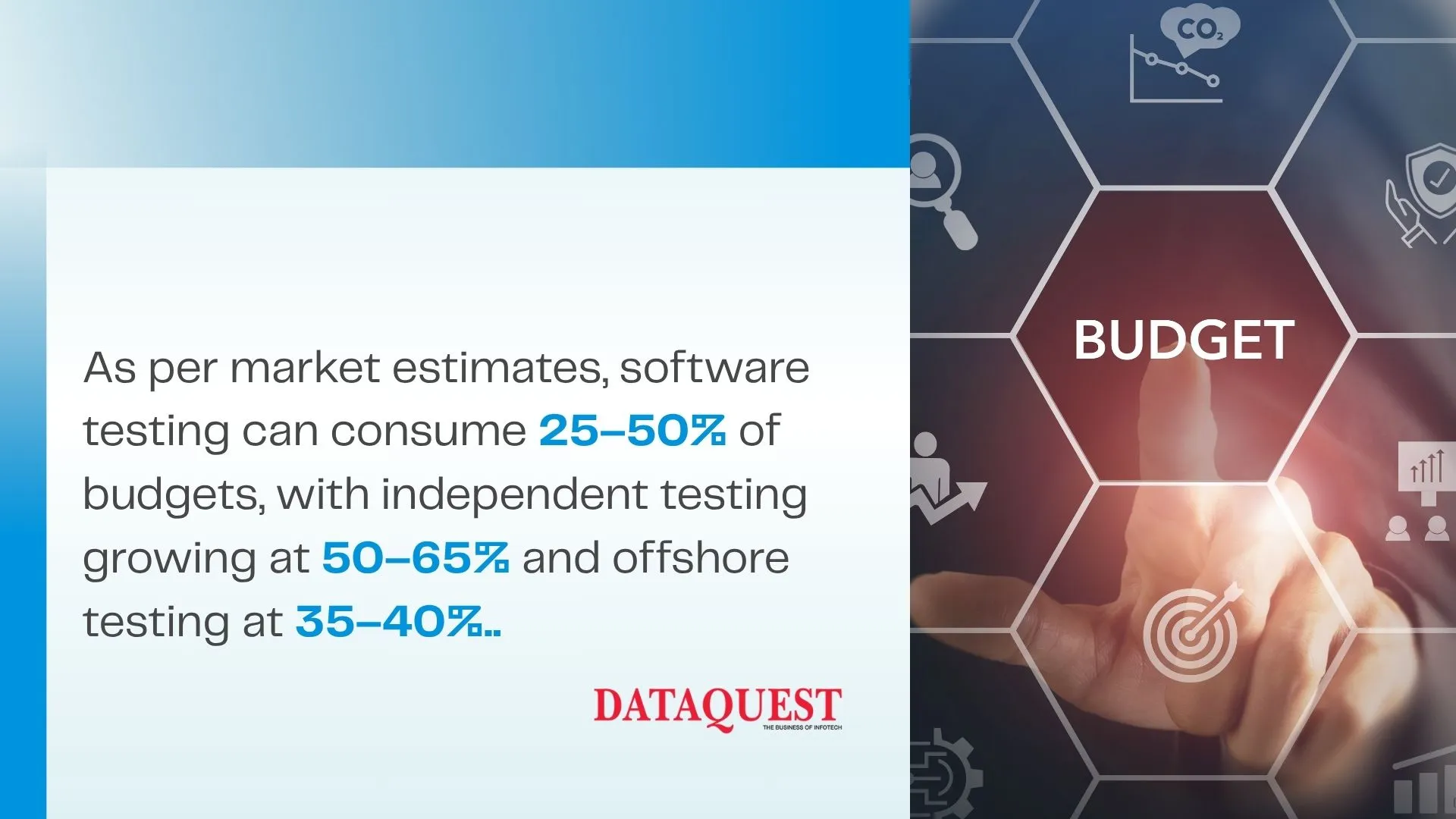
Whether you're a startup releasing your MVP or an organization expanding operations, working with software testing and QA services keeps you nimble, compliant, and user-ready. This blog delves into why independence is important in testing, when to consider it, what types of services are available, and how to select the right QA partner. 🤝✅
Key Takeaways 🔑
📌 Understanding independent software testing services and how they differ from in-house testing methods.
📌 Why independence is crucial for fair, high-quality software testing, even when using outsourced services.
📌 Independent services offer several types of software testing, including automated, security, and regression testing.
📌 Understand who should use quality assurance software testing services and when to collaborate with external QA teams.
📌 Discover how independent testing fits into Agile and DevOps, and how to select the best independent software testing partner for long-term success.
What Are Independent Software Testing Services?
Independent software testing services are third-party testing solutions given by external teams or firms who are not involved in the software development process. Unlike in-house testing, these services provide an objective and unbiased way to reviewing software solutions.
These specialists specialize in providing software quality assurance testing services that include functional, performance, security, and usability testing. Because they are not part of the development team, independent testers might identify concerns that internal teams may overlook or unintentionally neglect.
Outsourced or contracted software testing services rely on contemporary tools, frameworks, and automated testing to ensure software quality, dependability, and security.
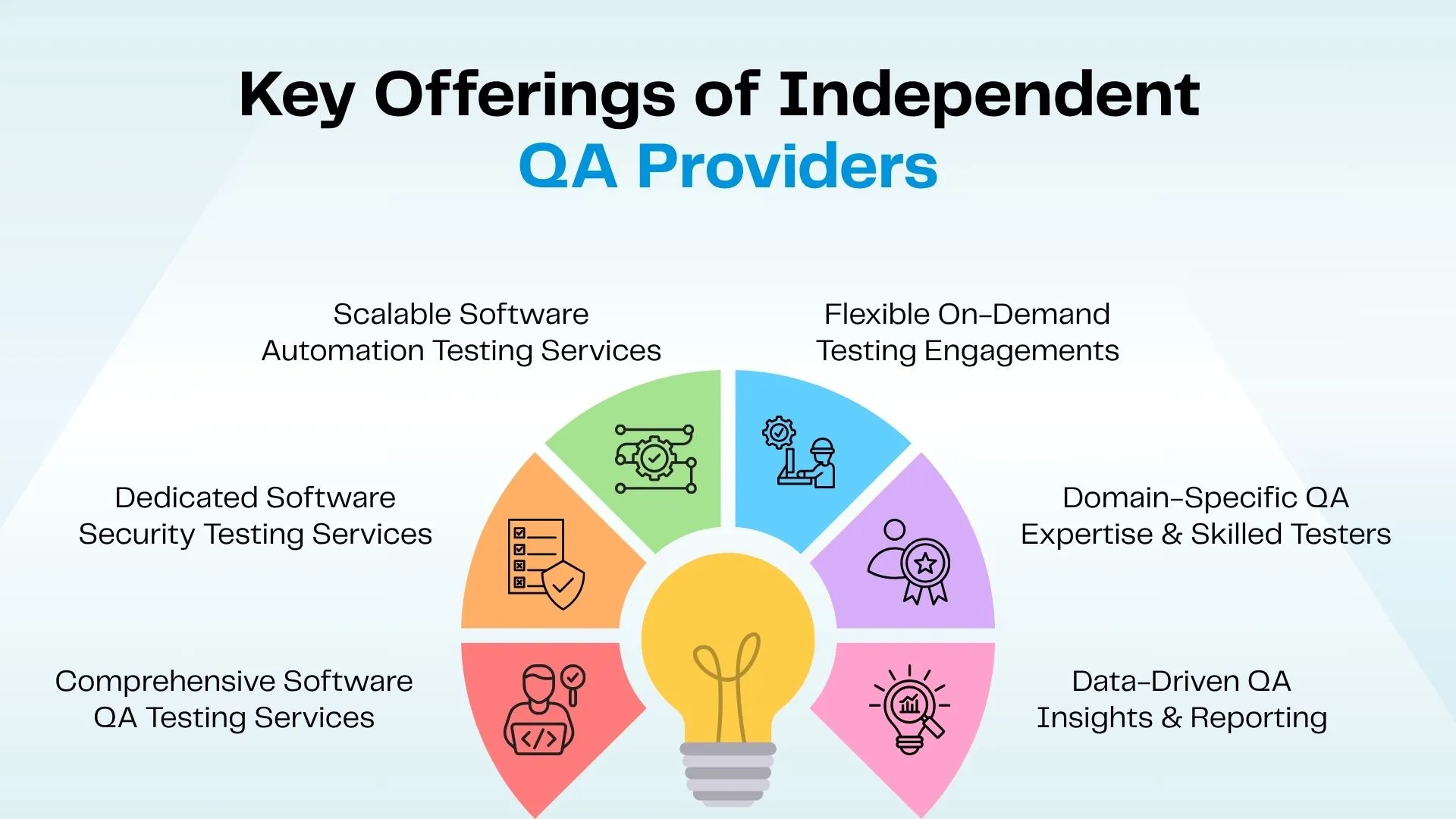
Why Independence Matters in Software Testing?
In the area of software testing, independence is a quality principle rather than a preference. When the same team that creates the software also tests it, there is a greater risk of bias, overlooked errors, or assumption-based validation. Independent software testing services provide unrivaled value.
By hiring a third-party QA service, you can assure that the testing is done with a fresh viewpoint, devoid of internal demands, deadlines, or emotional attachment to the code. This generates unbiased and objective feedback, which is vital for identifying key flaws and improving product reliability.
These teams also provide access to advanced automated software testing services, the most recent software testing automation tools, and extensive experience managing difficult testing situations – all without a conflict of interest.
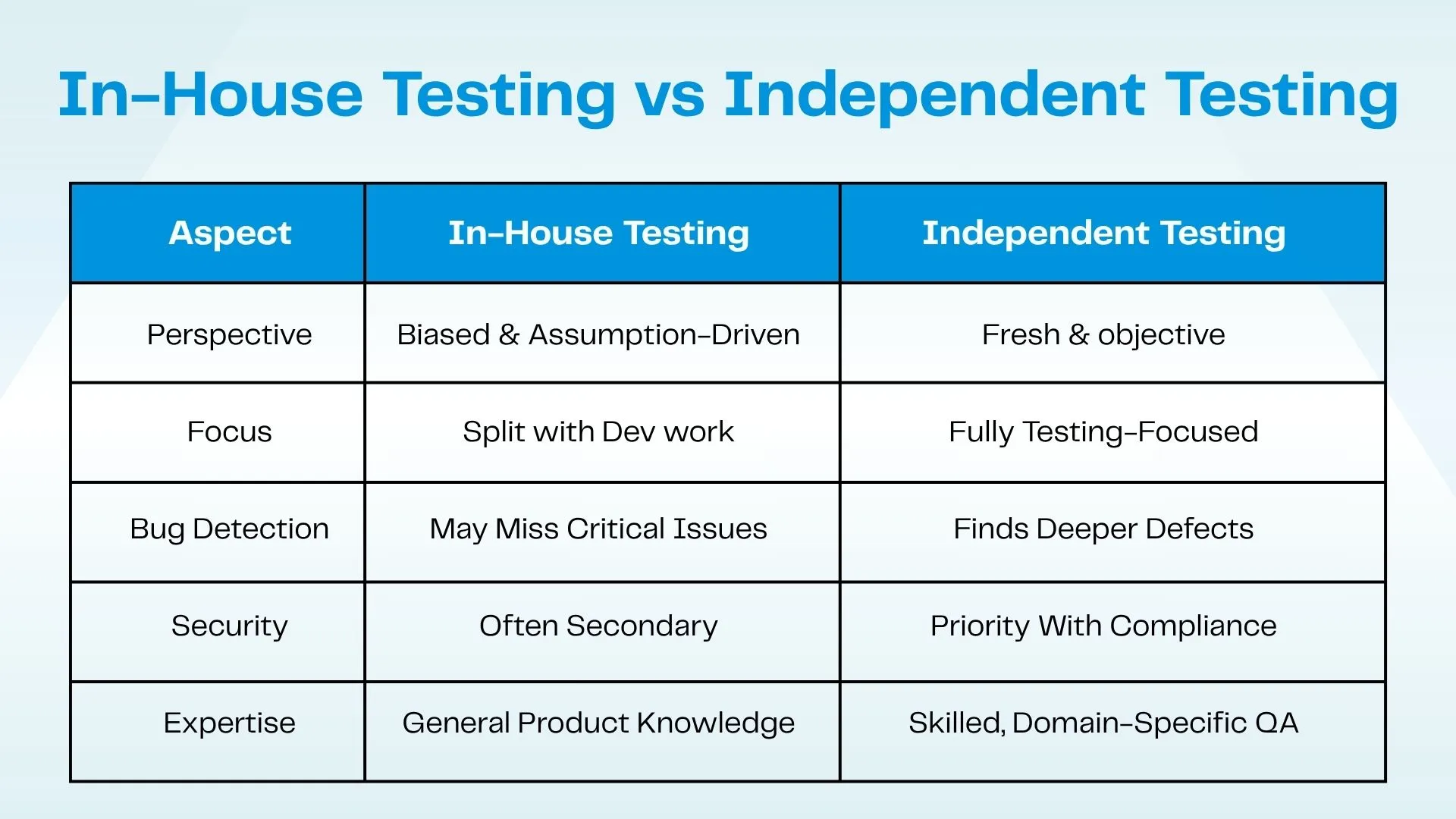
Types of Testing Offered by Independent Providers
Independent QA providers offer a wide range of software testing services designed to ensure that your application runs smoothly, safely, and efficiently. The following are the primary types of testing they provide, each geared to address distinct difficulties in the software development lifecycle:
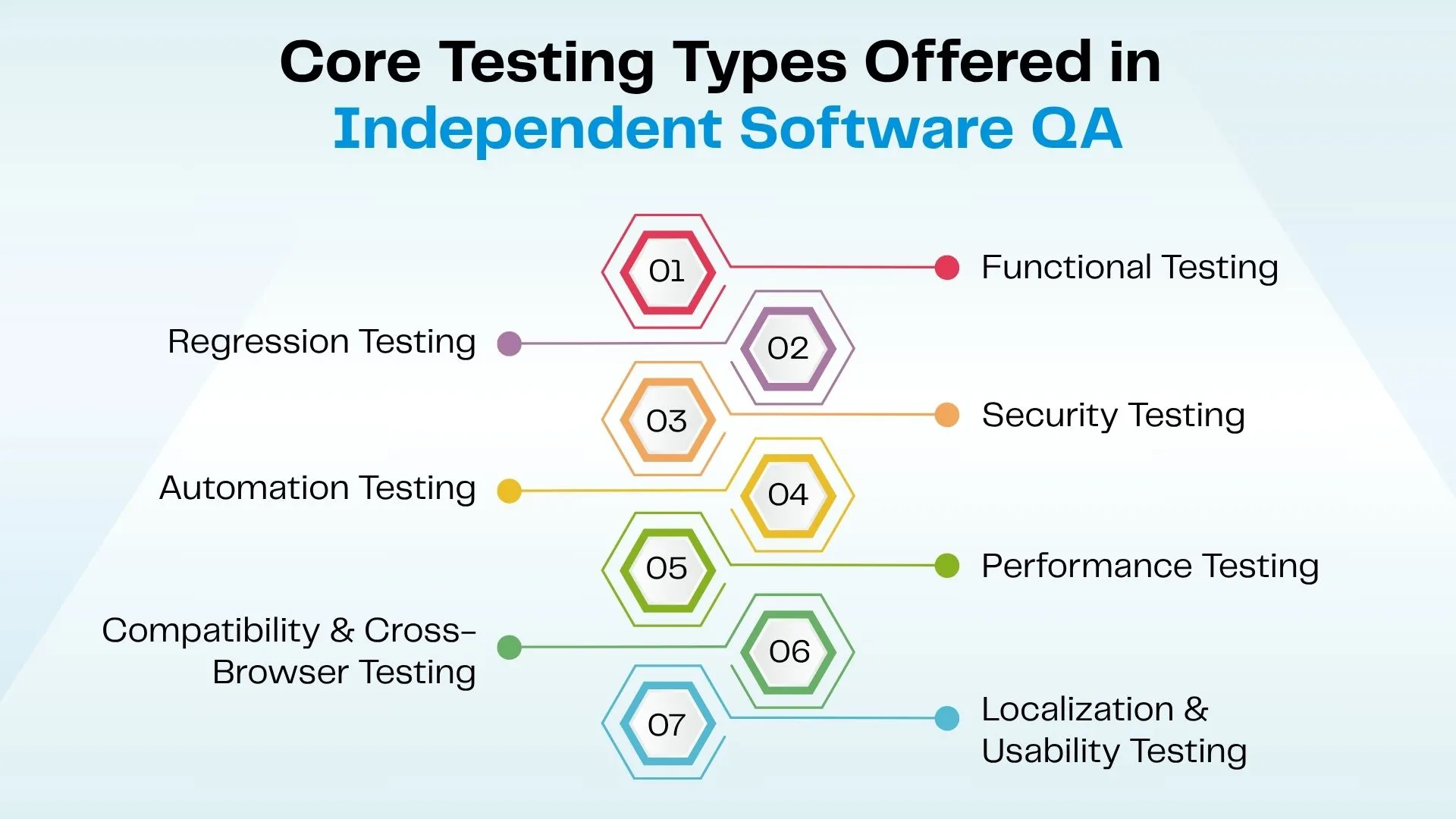
- Functional Testing: Validates that the application follows the defined requirements. It tests each function (such as login, data input, navigation, and so on) to guarantee that everything functions properly. This is the cornerstone for most software testing and QA services.
- Security Testing: It focuses on detecting vulnerabilities, threats, and hazards in your application. Independent providers utilize penetration testing software and other techniques to confirm that your product can withstand real-world intrusions while adhering to compliance rules. A key component of software security testing services.
- Regression Testing: Ensures that new code changes did not introduce defects into existing functionality. Independent teams frequently utilize automated software testing tools to do repeated tests, which makes them faster and more dependable over time, a critical component of software regression testing.
- Automation Testing: Write programs to automatically test repetitive and complex activities. This reduces manual effort, accelerates the process, and improves accuracy, making it particularly valuable in software automation testing services and workflows.
- Performance Testing: Determines how well your application operates under load and stress. It finds bottlenecks, crashes, and delayed reaction times, ensuring that your system is scalable. Common in software performance testing for enterprise applications
- Compatibility & Cross-Browser Testing: Checks that your software works seamlessly across numerous devices, browsers, and operating systems. This contributes to a consistent user experience, which is an important aspect of software quality assurance testing services.
- Localization & Usability Testing: Evaluates your app's adaptability to various languages, cultures, and user expectations. It also guarantees that the interface is intuitive, simple to use, and targeted to your worldwide audience, which is a vital component of modern QA software testing.
Who Should Use Independent QA Services?
Independent QA services are beneficial to a wide range of organizations, including nimble startups, global enterprises, and highly regulated industries. These services provide flexible, scalable, and unbiased testing help that is tailored to each team's specific needs. Whether you're starting from scratch or managing big systems, independent QA ensures that releases go smoothly and with excellent quality.
Teams benefit from collaborating with skilled QA professionals because it provides them with new insights, specialized skills, and domain-specific validation. This method improves software quality, increases security and compliance, and shortens time to market all while lowering internal costs and increasing confidence in the finished product.
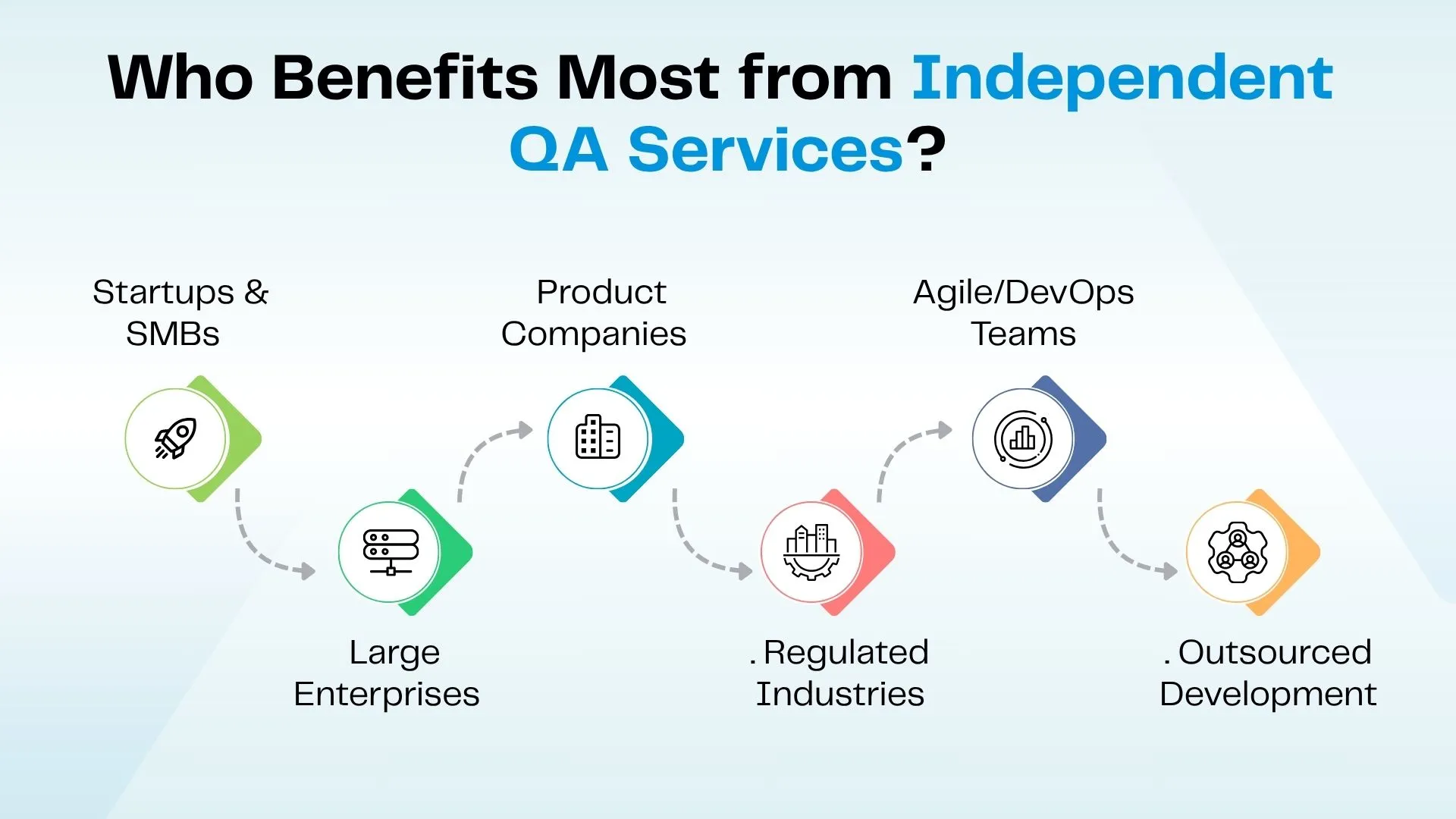
Top 7 Reasons to Choose Independent Testing Services
Using an independent testing firm can improve your product's quality and add new, expert viewpoints to your QA process. With the rise of artificial intelligence in software testing, these firms now offer smarter and more efficient ways to detect bugs and optimize testing workflows. The following are the top reasons why businesses from various industries are resorting to independent testing services.
1. Get Unbiased and Objective Feedback on Your Software
Independent testing services offer a new, outsider's perspective that is free of internal biases and assumptions. This neutrality assists in identifying hidden faults, usability defects, or performance bottlenecks that internal teams may overlook owing to product familiarity. What was the result? A more accurate, comprehensive assessment of your software's quality.
2. Work with Skilled Test Engineers Who Know Your Domain
Independent QA providers frequently specialize in specialized industries such as healthcare, finance, retail, and SaaS. Because of this domain experience, testers do more than just execute scripts; they understand your business logic, user routines, compliance requirements, and industry-specific dangers.
Working with domain-aware test engineers leads to improved test coverage, better test design, and faster identification of high-impact defects. They understand where to search, what to ask, and how to validate your product from a real-world user perspective.
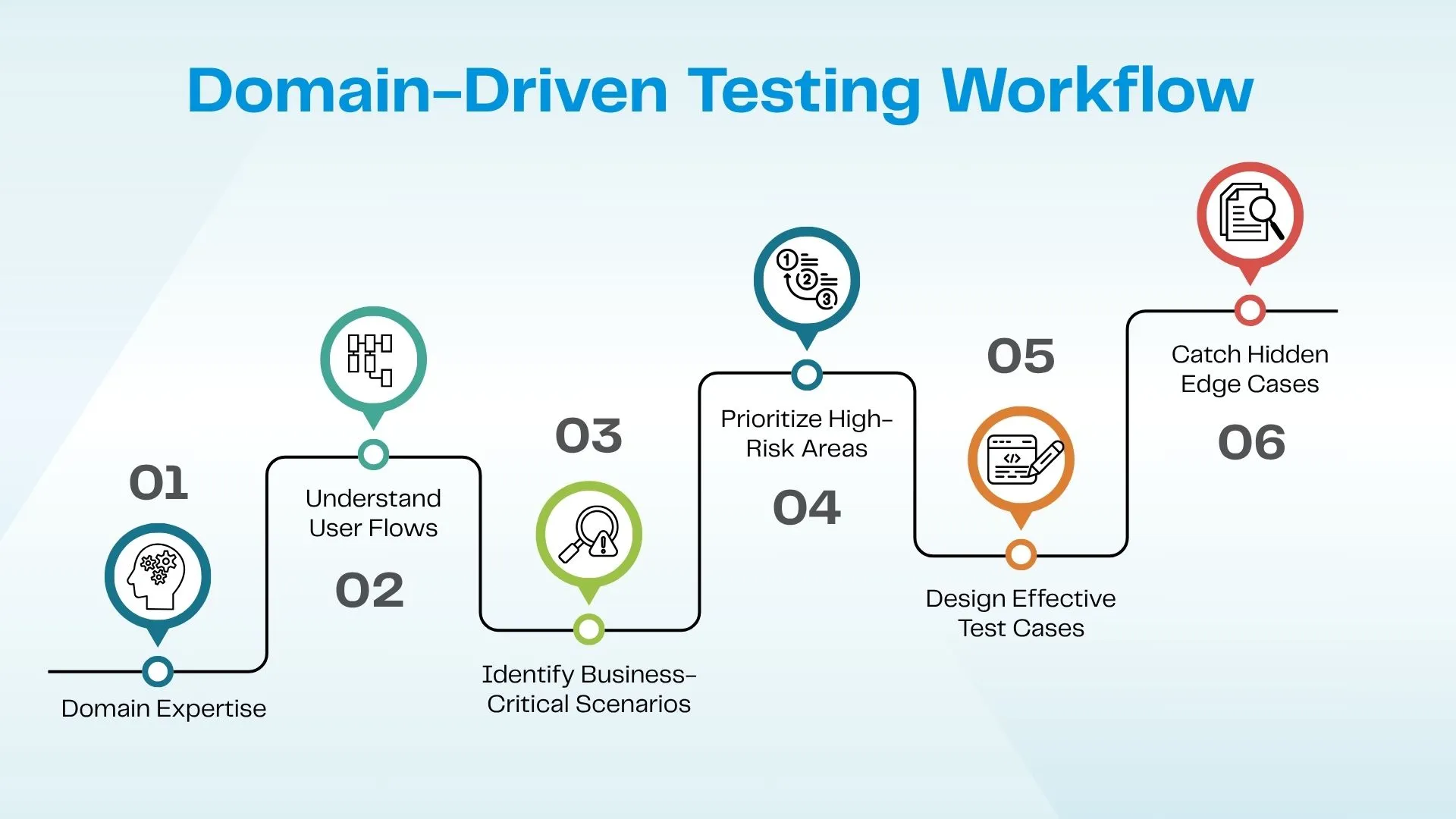
3. Leverage the Latest Testing Tools and Frameworks
Keep up with cutting-edge testing tools designed specifically for your application stack. Independent QA teams provide easy access to frameworks that can streamline and boost your testing operations.
- Use tools such as Selenium, Appium, Cypress, and Playwright.
- Tool selection is based on your technical stack and project requirements.
- Faster execution and better test coverage.
- There's no requirement for internal maintenance or setup.
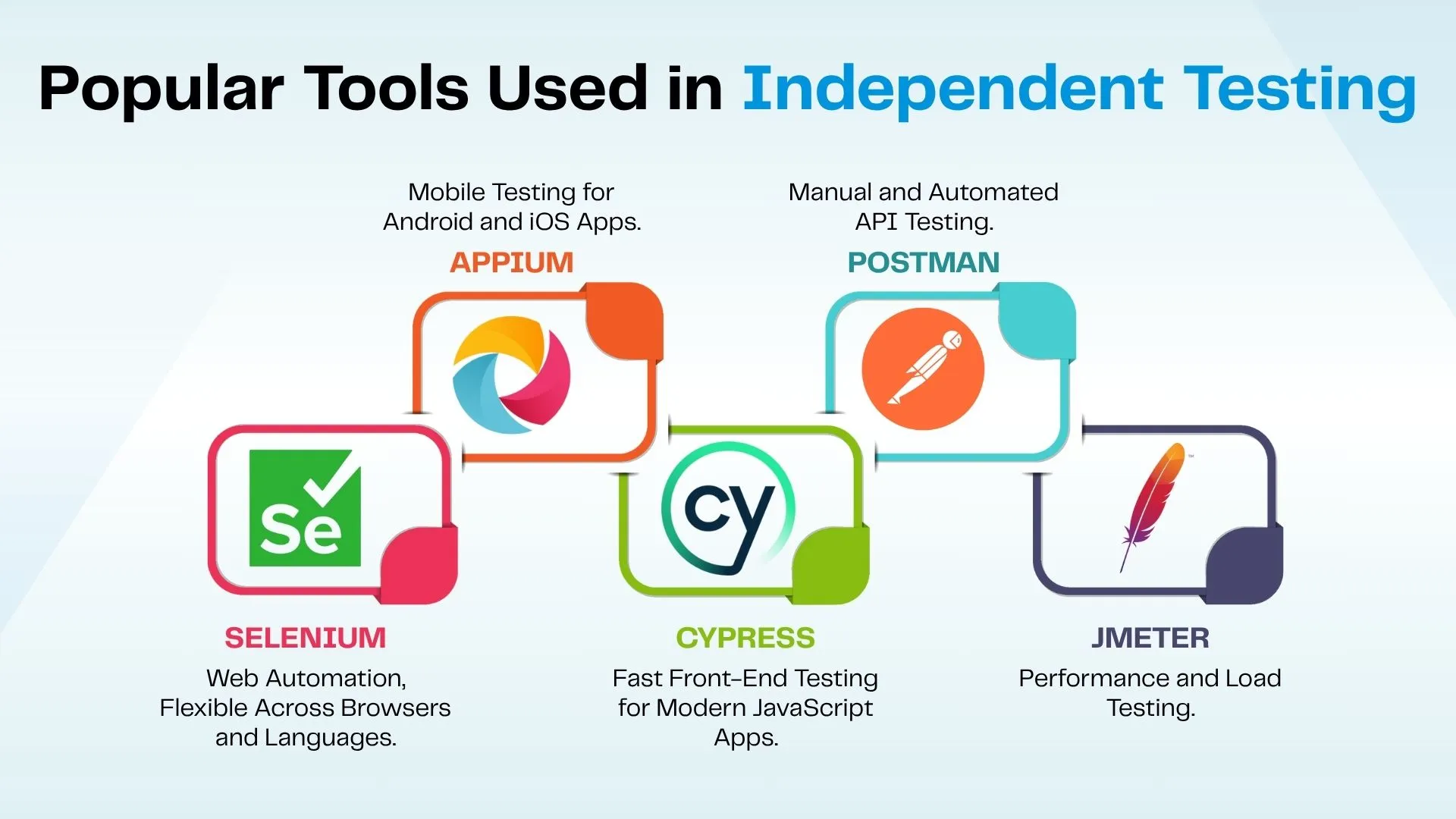
4. Speed Up Your Releases Without Compromising Quality
Independent QA teams help you release faster by integrating easily into your CI/CD pipeline. They ensure that your program is constantly production-ready, without sacrificing quality.
- Align testing with agile sprints and release schedules.
- Combine manual, automated, and exploratory testing.
- Detecting problems early and minimizing bug-related delays.
- Enable faster and more frequent deployments.
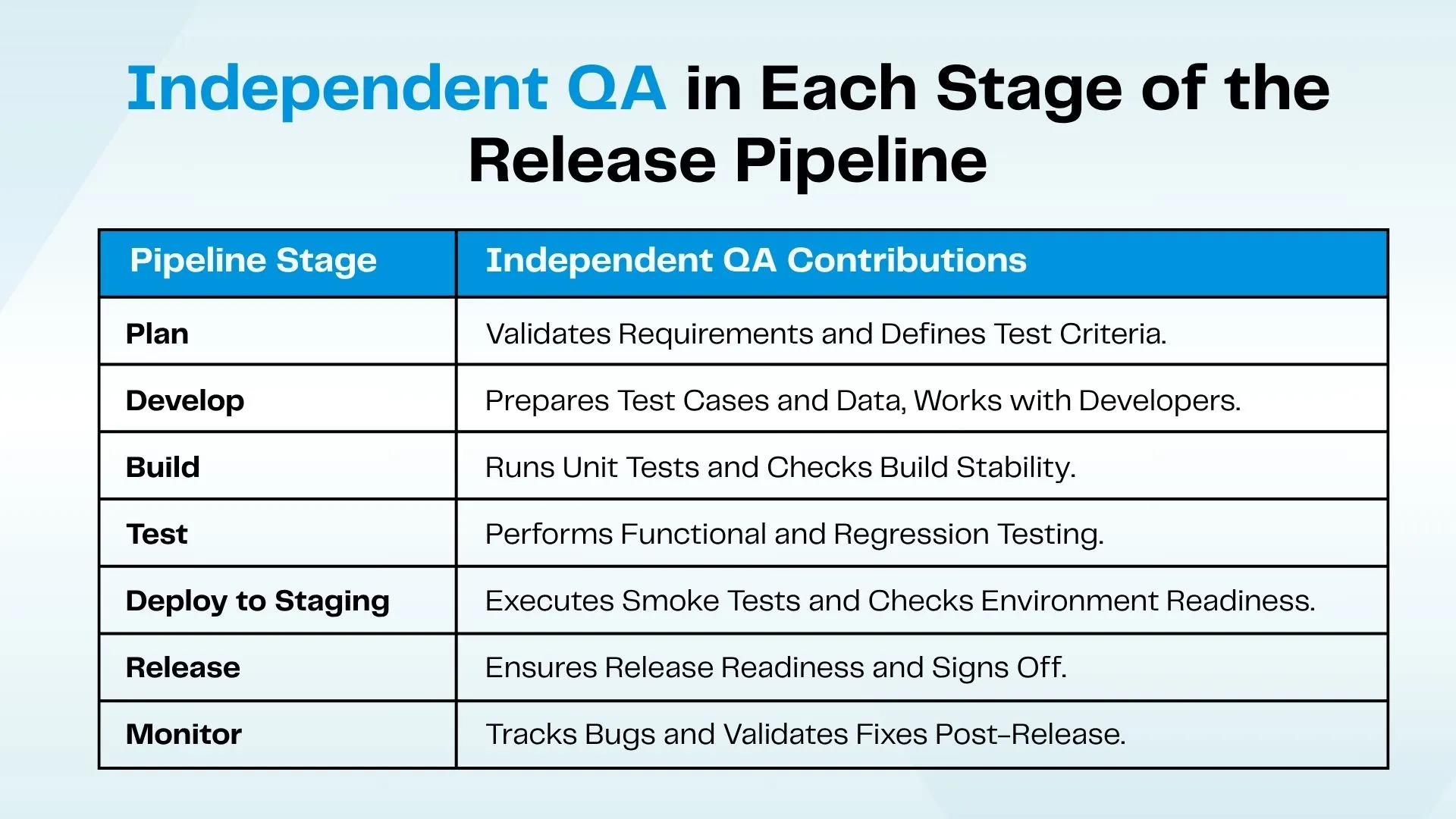
5. Save Costs with Flexible and Scalable Testing Models
Outsourced QA services provide flexible engagement models, eliminating the requirement for costly in-house staff. Scale your efforts as needed while staying under budget.
- Avoid the expenditures of employing and training full-time QA employees.
- Choose between on-demand and pay-as-you-go modes.
- Use offshore/nearshore testers to reduce costs.
- Pay simply for what you use, with no long-term commitment.
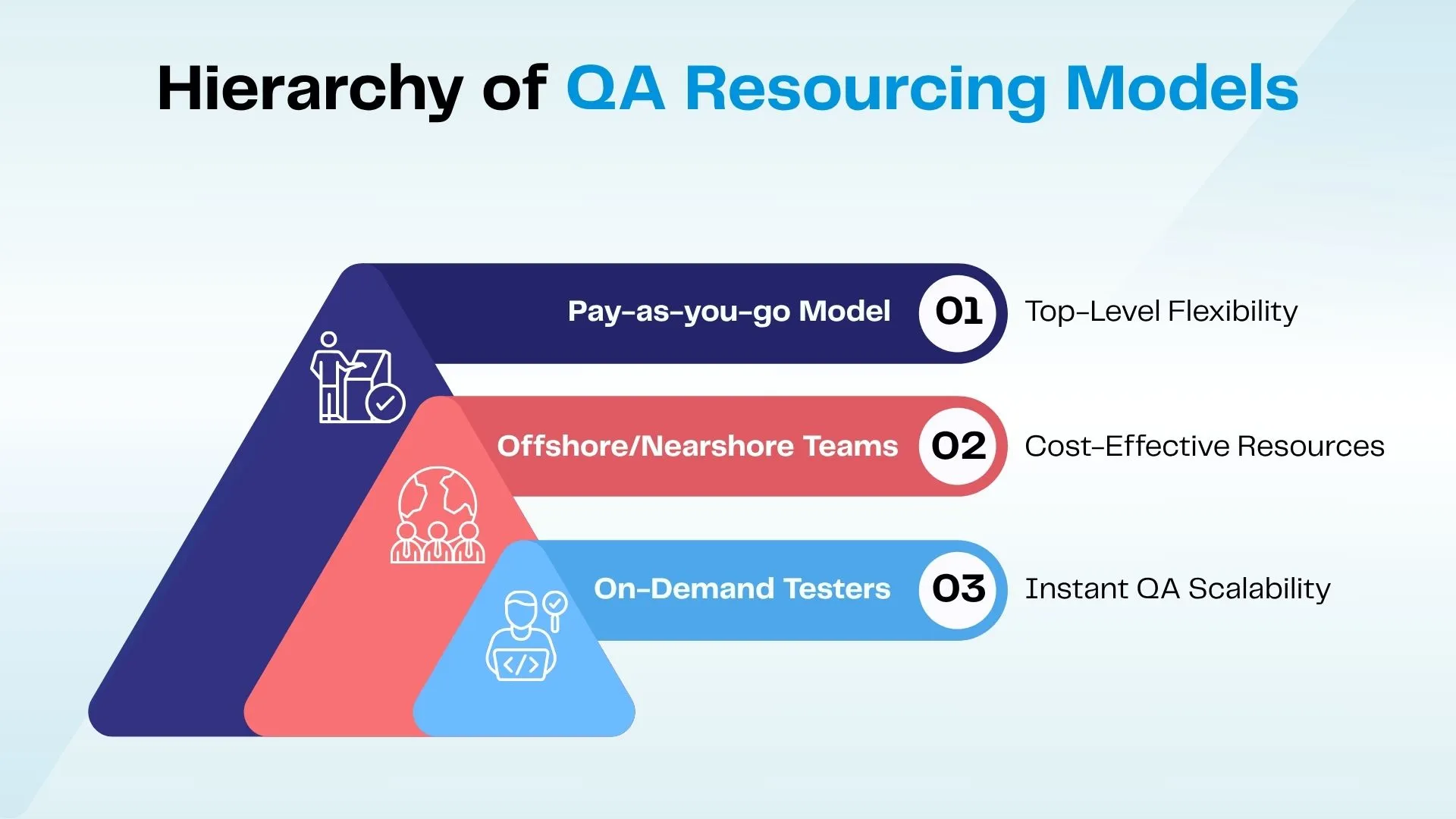
6. Strengthen Security and Meet Compliance Standards
Security-focused QA partners understand industry-wide compliance needs. They assist you in complying with legal requirements while also securing your consumers and data.
- Perform compliance testing for GDPR, HIPAA, ISO, and other regulations.
- Identify vulnerabilities through regular security testing.
- Ensure that secure coding techniques are evaluated.
- Avoid data breaches and regulatory penalties.
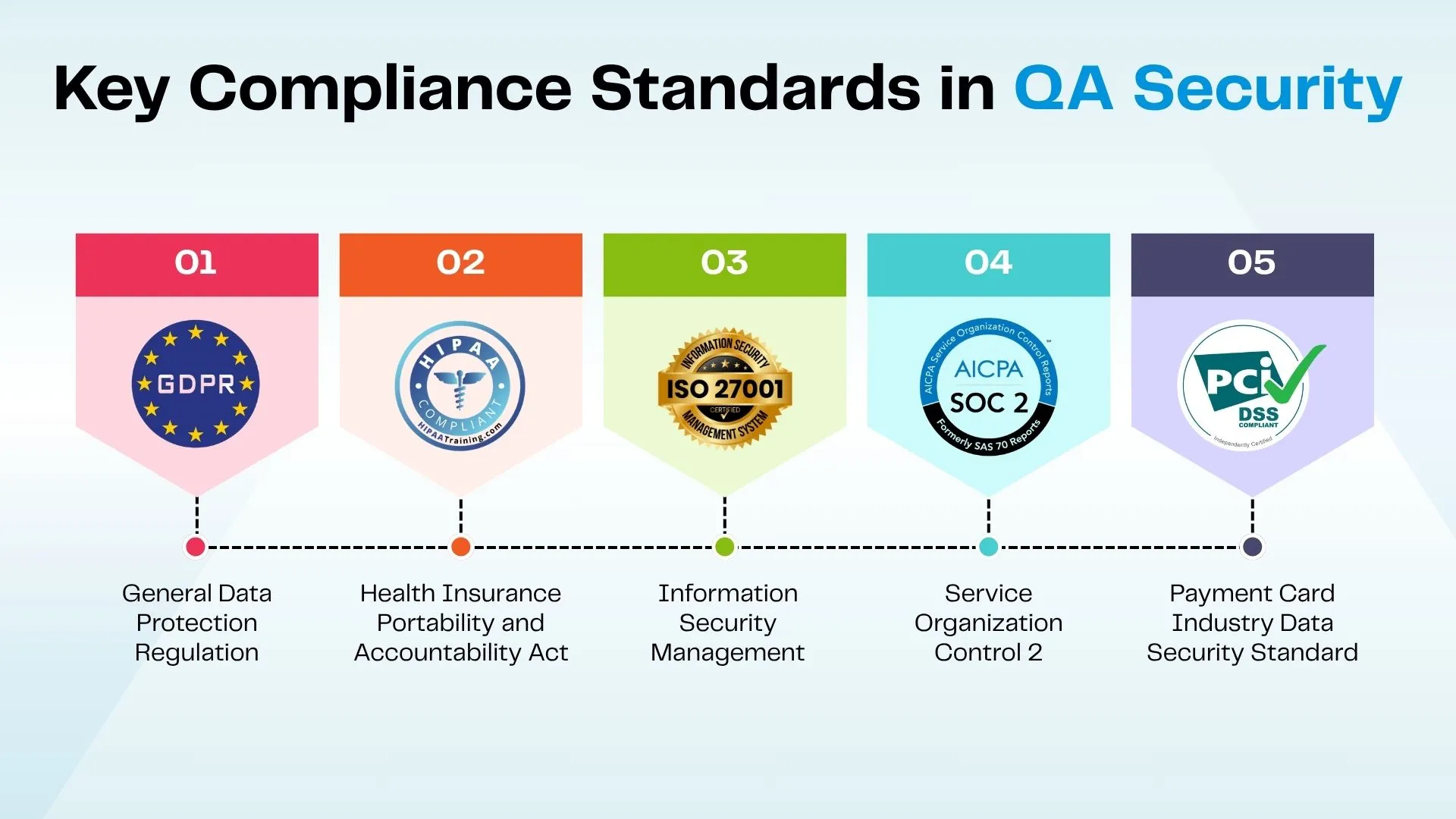
7. Scale Testing Efforts Quickly Based on Your Needs
Need to test a major release? Independent QA services can rapidly increase test coverage and capacity without the need for internal hiring or onboarding.
- Increase test coverage during high-demand periods.
- Add testers, devices, and automation as needed.
- Adapt swiftly to corporate expansion or deadlines.
- There are no delays with hiring or infrastructure setup.
When Should You Use Independent Testing Services?
Independent testing isn't limited to highly regulated industries or big businesses. For businesses of all sizes and industries, they offer enormous value, particularly when software quality, speed, or compliance are critical factors.
If your internal team is overworked or lacks domain expertise, you may need to hire outside QA specialists. Bringing in outside testers can help identify important problems that might otherwise go overlooked, guarantee objective validation, and relieve internal pressure.
They're also a good option when getting ready for a big release, audit, or security review, where getting unbiased feedback is essential. Whether you're working on a project with a tight deadline, integrating third-party code, or scaling rapidly, independent QA ensures your software meets quality standards without sacrificing time. Many teams also explore a software testing course to upskill internally, or use split testing software alongside testing services software to improve test coverage and decision-making.
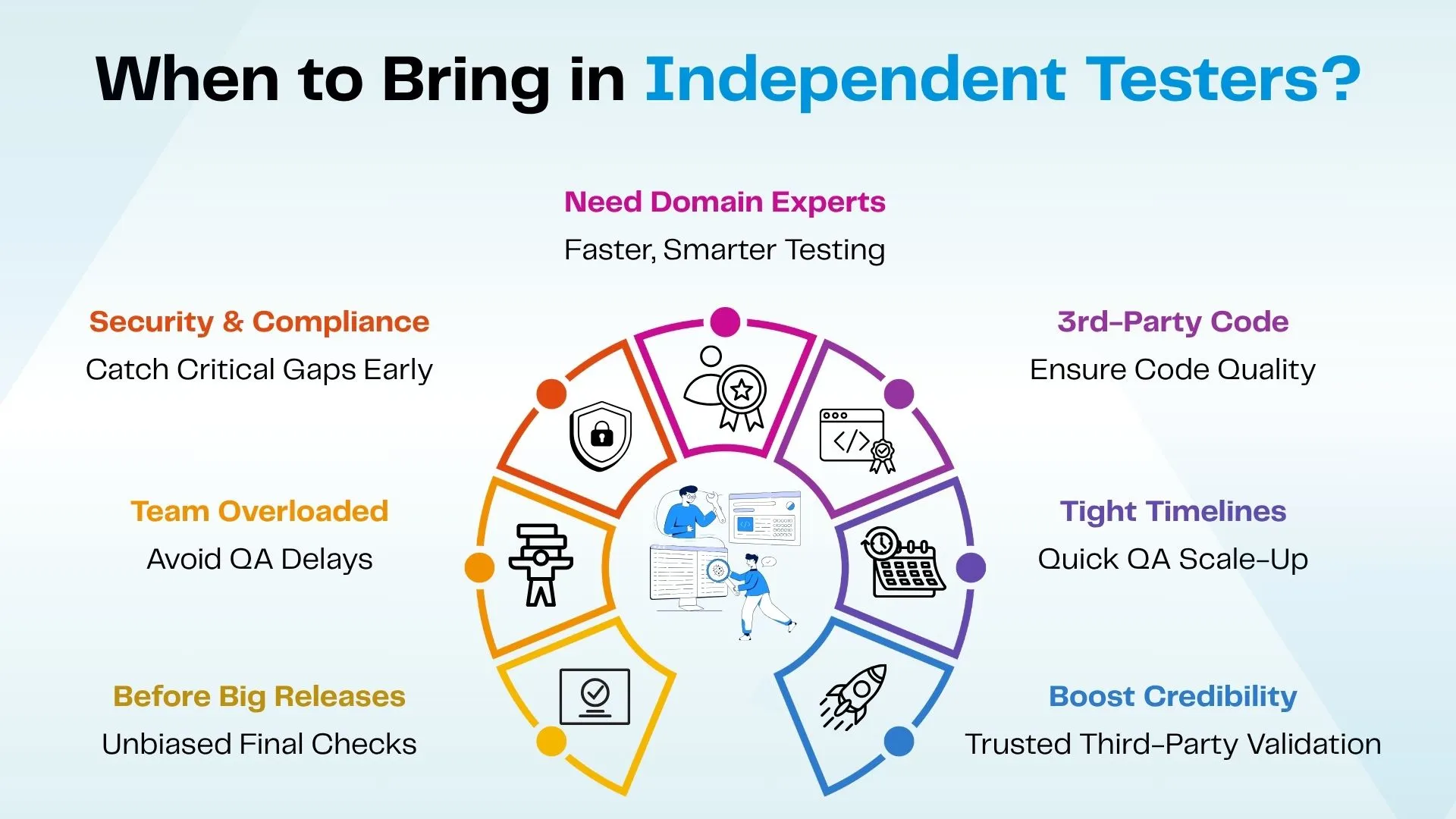
How Independent Testing Fits into Agile and DevOps
Agile and DevOps environments prioritize rapid delivery, continuous integration, and high-quality software. Independent testing services enhance these objectives by providing objectivity, scalability, and specialized expertise throughout the testing process.
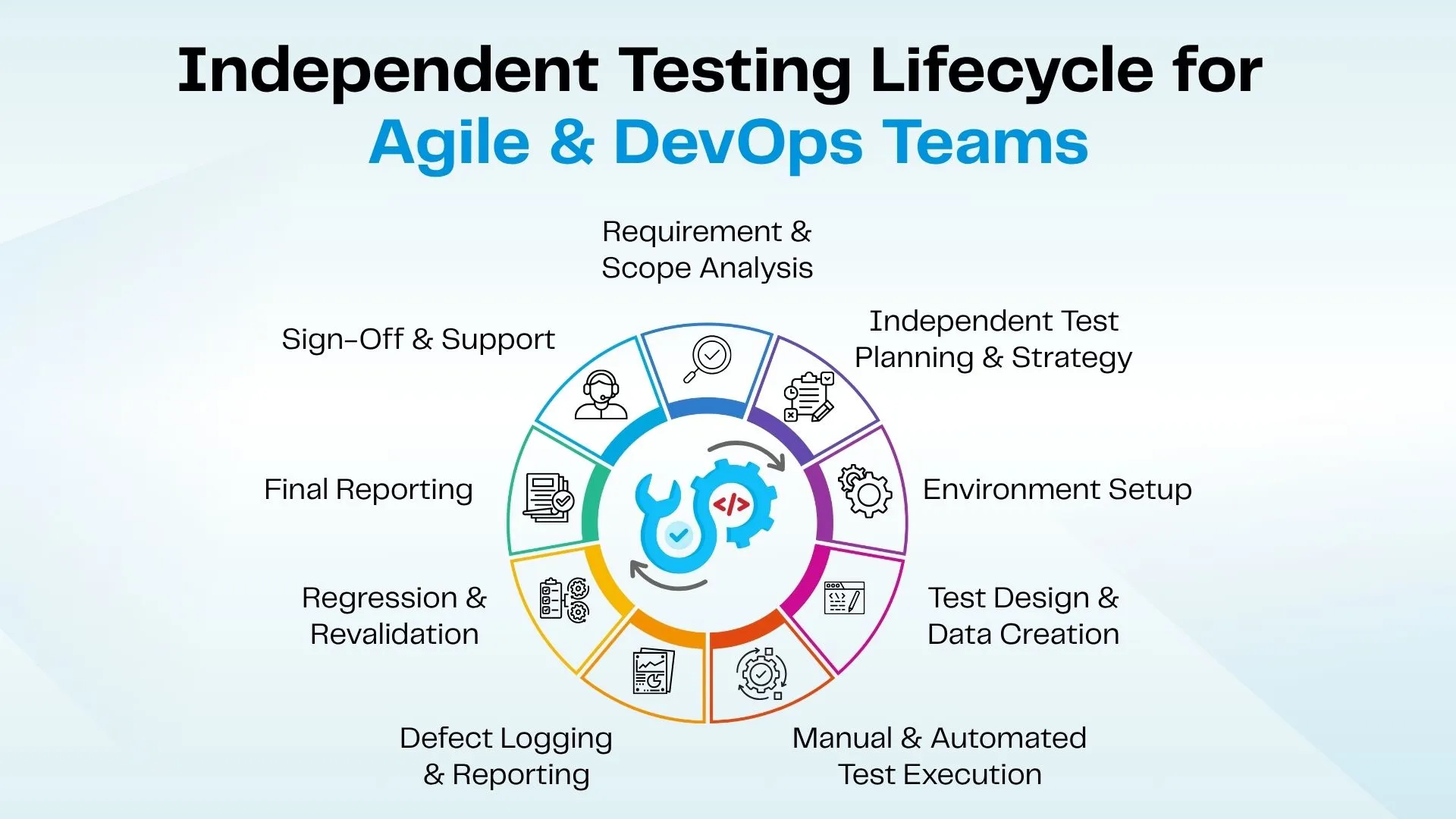
Independent testing teams integrate effortlessly into modern workflows, providing a fresh viewpoint while collaborating with your in-house QA. They assist with implementing best testing methods, developing robust test methodologies, and doing both manual and automated testing to ensure complete coverage across all stages. Here's how they contribute effectively:
1. Early Validation with Shift-Left Testing: Independent testers engage early in development, creating test plans and collaborating on unit-level validation to catch bugs sooner.
2. Continuous Testing in CI/CD Pipelines: They enable rapid feedback with automation tools, running regression and integration tests aligned with continuous delivery cycles.
3. Cross-Platform Test Coverage: From web to mobile, they ensure compatibility across devices and platforms by building reliable and scalable test environments.
4. Functional & Non-Functional Testing: They validate core functionality, performance, and reliability through comprehensive testing like system, load, and stress tests.
5. Security & Compliance Readiness: Independent teams run security assessments and audits to help meet data protection and regulatory compliance standards.
6. Improved User Satisfaction: By testing real-world scenarios and critical flows, they uncover edge cases that improve product quality and user experience.
How to Choose the Right Independent Testing Partner
Choosing the right independent software testing company plays a critical role in ensuring high-quality releases, faster go-to-market, and reduced post-launch risks. A strong testing partner brings expertise in testing practices, robust test automation, and reliable test case execution.
From early Unit Testing to end-to-end System Testing and Acceptance Testing, the right choice supports your entire testing cycle. Here’s what to look for when selecting the best partner for your needs. 🎯
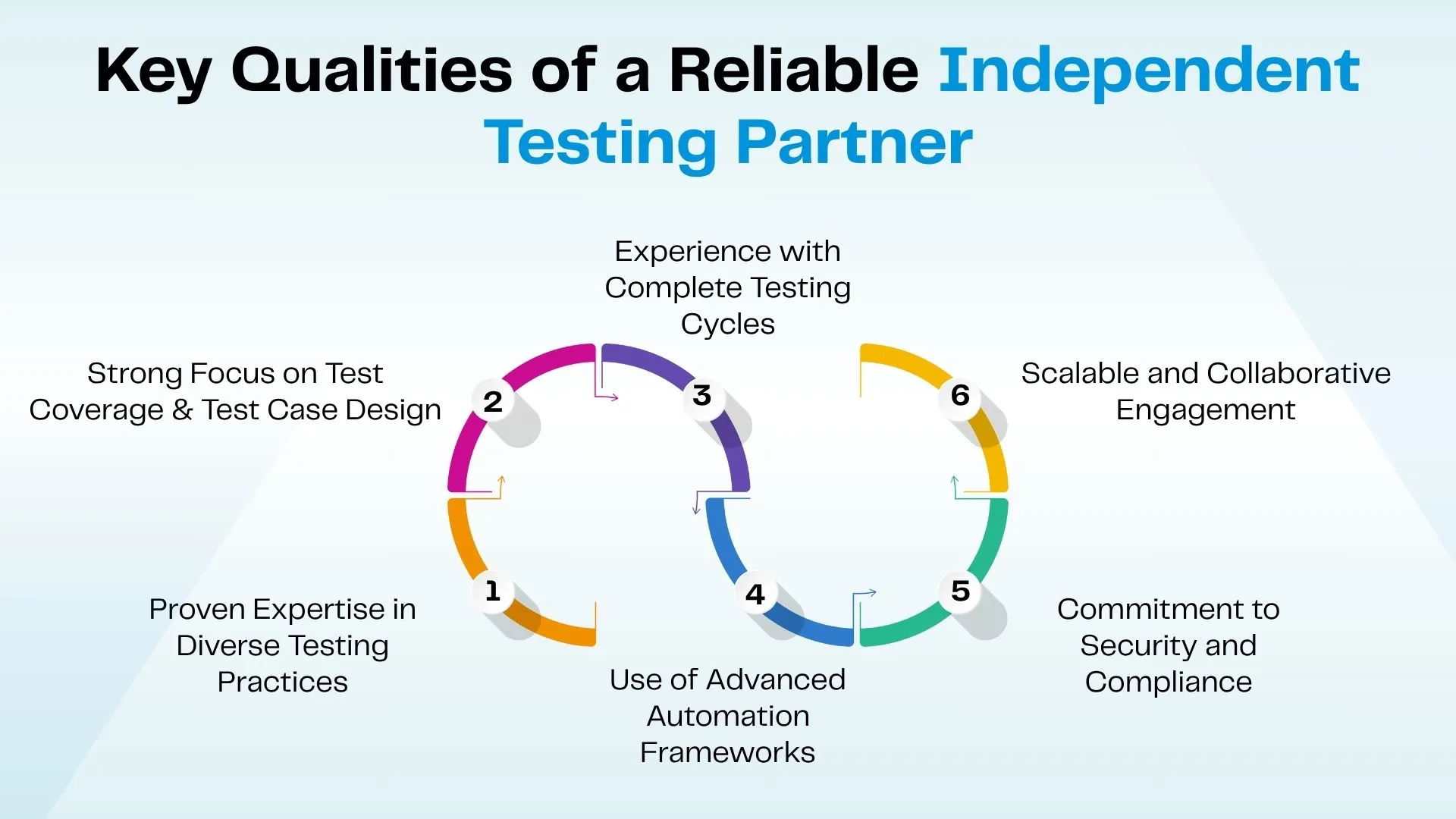
1. Proven Expertise in Diverse Testing Practices: Ensure they offer a comprehensive mix of Manual Testing, test automation, Acceptance Testing, System Testing, and Integration Testing all backed by a skilled test team familiar with modern testing practices and tools.
2. Strong Focus on Test Coverage & Test Case Design: Look for a partner who designs detailed test cases covering both functional and non-functional aspects like Load Testing, Stress Testing, and compatibility testing across platforms, including mobile testing and web.
3. Experience with Complete Testing Cycles: A reliable partner should support the entire testing cycle from software Unit Testing and test planning to Automated Regression Testing in software testing and post-release validation ensuring complete QA ownership.
4. Use of Advanced Automation Frameworks: Check if they leverage popular automation frameworks that enable scalable and reusable test automation to reduce execution time and enhance quality over multiple releases.
5. Commitment to Security and Compliance: Evaluate their approach to security audits, vulnerability testing, and data privacy. The right partner must handle sensitive test data securely while aligning with compliance standards.
6. Scalable and Collaborative Engagement: An ideal independent software testing company should act as an extension of your test team, adapting to your agile needs and scaling efforts as your project evolves.
Final Thoughts
Choosing independent software testing services isn’t just a trend, it's a strategic move that helps modern teams deliver high-quality products faster and more efficiently. Whether you're a startup scaling rapidly or an enterprise juggling multiple releases, working with an independent software testing company brings in the right balance of objectivity, expertise, and flexibility.
Throughout this blog, we explored what independent testing really means, the wide range of testing types. We also looked at when you should consider these services, how they integrate into Agile and DevOps workflows, and how they can support your test team with everything from test automation to security audits. A good independent partner can design detailed test cases, conduct manual testing and automated regression testing, and help you implement automation frameworks suited to your environment.
Ultimately, the right independent QA partner ensures your testing cycle is thorough, efficient, and aligned with your release goals without bias or compromise. It’s not just about finding a service provider; it’s about building a partnership that elevates your product quality and customer trust.
FAQs
1. How long does it take to onboard an independent testing team?
Onboarding typically takes 1–2 weeks, depending on the complexity of your project and how prepared your internal systems are. A clear scope and early access to documentation can speed up the process.
2. Can independent QA teams help with test data management and environment setup?
Yes, most independent software testing companies offer support for creating test data and setting up test environments. This ensures smoother execution and more reliable test results.
3. How do independent testers stay updated with new testing trends and tools?
Independent testers regularly participate in training programs, industry events, and certifications. Many also explore emerging testing tools, automation frameworks, and best testing practices through community engagement.
4. What level of documentation do independent QA teams provide?
Independent QA teams typically offer well-structured documentation, including detailed test cases, execution results, bug reports, and testing cycle summaries. This helps ensure transparency and traceability.
5. What is the difference between managed testing services and staff augmentation?
Managed testing services take full ownership of your testing efforts, including strategy, execution, and reporting. Staff augmentation, on the other hand, simply adds skilled testers to your existing test team.





%201.webp)
